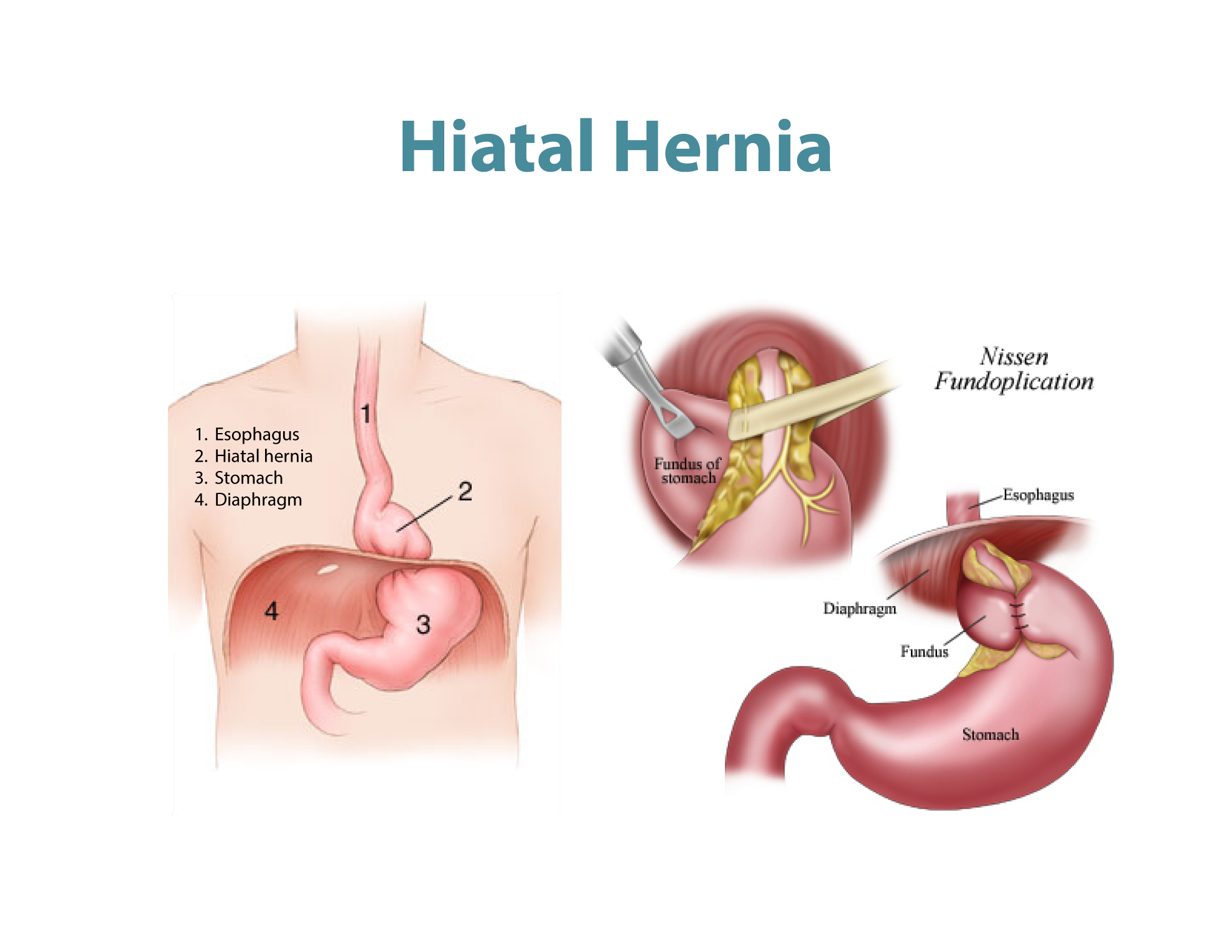
Gastroesophageal Reflux Disease (GERD) is one of the commonest esophageal problems encountered. The problem lies in lower esophageal sphincter (valve mechanism) where it becomes incompetent allowing the acid and food in the stomach to reflux back into the esophagus. This will cause the feeling of heartburn and regurgitation. Unfortunately, the acid causes inflammation of the esophagus, that if left untreated can cause narrowing of the lumen and ultimately difficulty swallowing. The persistence of acid injury to the esophagus can also alter the inner lining of the esophagus to something called Barrett’s Esophagus. This carries the risk of changing further into dysplasia (a precursor for cancer) and ultimately cancer if left untreated.
A hiatal hernia is the widening of the opening of the diaphragm that lets the esophagus through from the chest to the abdomen. This hernia can further increase the reflux problem if present. A hernia can only be treated surgically if it size is significant.
Upper Endoscopy is usually the initial step to confirm the diagnosis. It is an outpatient procedure that is usually done by our Gastroenterologists. The inflammation of the esophagus, or any changes in its lining can be visualized directly. The presence of hiatal hernia can also be seen. Other tests like PH monitoring 24 or 48 hours is needed if no inflammation is seen on Endoscopy. Esophageal Manometry (Measuring the intrinsic pressure of the esophagus) is also needed if any esophageal motility disorder was suspected.
The treatment of GERD depends on its severity. It simply starts with lifestyle modifications that include:
- Small meals.
- Avoid fatty foods, chocolate, carbonated beverages and anything that can increase your symptoms.
- Avoid eating three hours before sleeping.
- Avoid smoking and excessive alcohol intake.
- Avoid sleeping flat.
Medications are needed if the above changes were not sufficient in controlling your symptoms. Medications either neutralize the acid, or reduce or suppress its secretion. If severe symptoms were present these medications should be taken on a regular basis.
New endoscopic treatments are present for selective cases, and are not suitable for everyone with reflux.
The gold standard, which everything is compared to, is the surgical Fundoplication. The long-term success rate of this procedure is no secret, and reaches 90% in the longest studies present 10 years after the procedure. When compared to other modalities of treatment, it has the longest and most success rate. This procedure is done in minimally invasive techniques. It is best explained in the video below.

